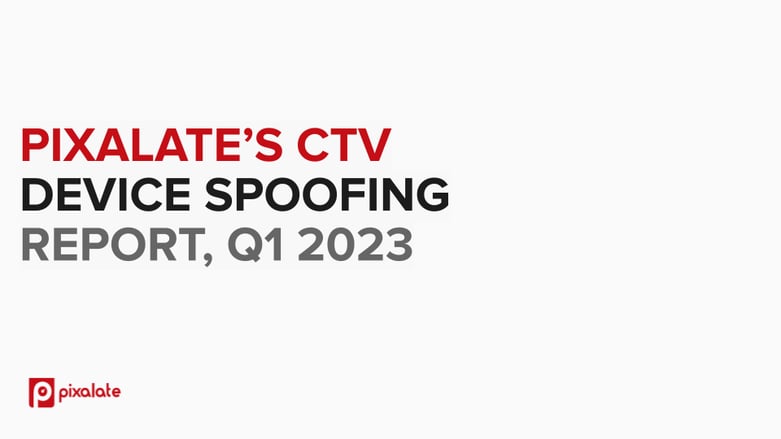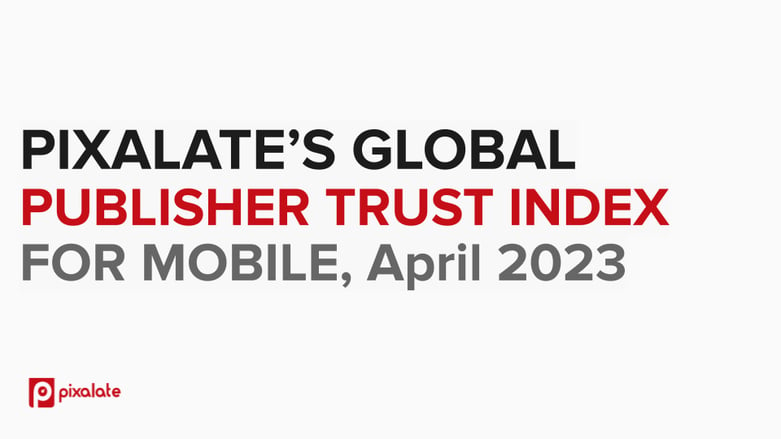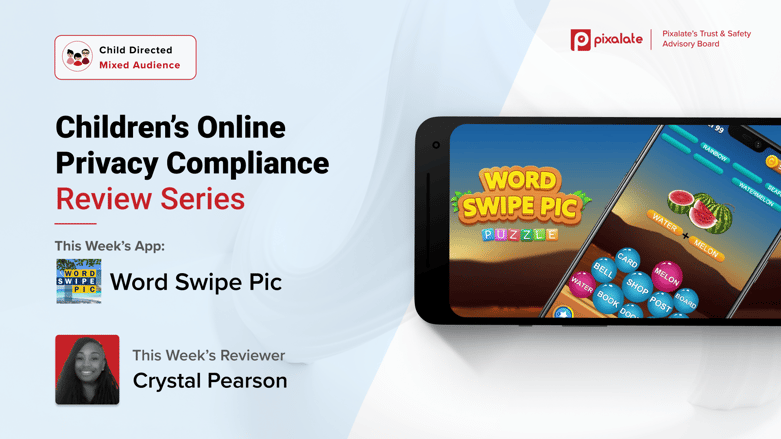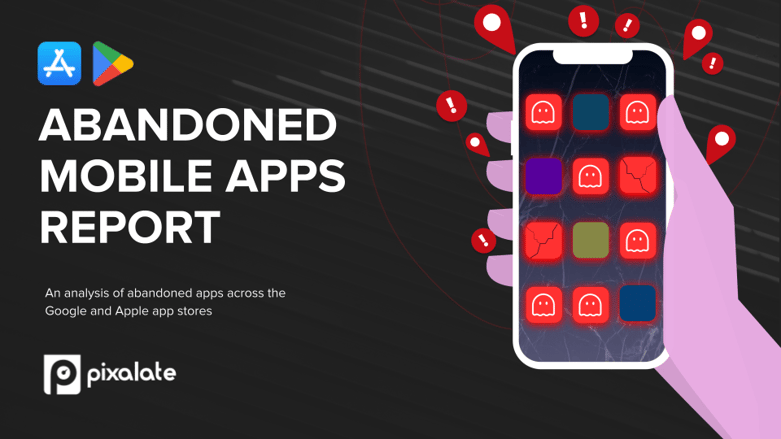
This week's review of ad fraud and privacy in the digital advertising space:

Pixalate this week released the Q1 2023 CTV Device Spoofing Report to reveal how often non-Roku devices are disguising themselves as Roku devices in the open programmatic advertising ecosystem. Find out more in this blog and get free access to the report below.

We also released the April 2023 Mobile Publisher Trust Index (PTI), a global approach to quality measurement and monthly rankings of the world's Connected TV (CTV) and mobile apps, bringing transparency to the programmatic advertising ecosystem. You can find out more in this blog and check out the full rankings below.

We recently spoke with Jess Okan, CEO and Co-founder of Screencore, about strategies for minimizing ad fraud in the connected TV ecosystem. Screencore is an AI and machine-learning-based online media solution that is designed to help our publishers and advertisers cover most of their programmatic needs with less workload but with more efficient outcomes. Read the full Q&A in this blog to find out more.

Pixalate's Trust & Safety Advisory Board published five new manual reviews this week where they assess an app’s child-directedness:
You can search Pixalate's full catalogue of reviews in our CTV and Mobile App Review Page

We followed up on the Q1 2023 Abandoned Mobile Apps Report, analyzing apps from the Google Play Store and Apple App Store that have been “abandoned.” An app is considered abandoned if it has not been updated in at least two years. We thought it would be beneficial to highlight some of the most interesting findings from the report in this blog. Access the full report below.

Pixalate are going to be in attendance at the Cannes Lions Festival of Creativity in Cannes, France, from the 19th to the 23rd of June. You can join us at the Terrace Lounge and discover how Pixalate's innovative solutions can help you combat ad fraud, ensure data privacy compliance, and maximize your advertising ROI. Visit our Cannes Lions 2023 event page to learn more and set up a meeting!
*By entering your email address and clicking Subscribe, you are agreeing to our Terms of Use and Privacy Policy.
These Stories on Weekly Recaps
*By entering your email address and clicking Subscribe, you are agreeing to our Terms of Use and Privacy Policy.

Disclaimer: The content of this page reflects Pixalate’s opinions with respect to the factors that Pixalate believes can be useful to the digital media industry. Any proprietary data shared is grounded in Pixalate’s proprietary technology and analytics, which Pixalate is continuously evaluating and updating. Any references to outside sources should not be construed as endorsements. Pixalate’s opinions are just that - opinion, not facts or guarantees.
Per the MRC, “'Fraud' is not intended to represent fraud as defined in various laws, statutes and ordinances or as conventionally used in U.S. Court or other legal proceedings, but rather a custom definition strictly for advertising measurement purposes. Also per the MRC, “‘Invalid Traffic’ is defined generally as traffic that does not meet certain ad serving quality or completeness criteria, or otherwise does not represent legitimate ad traffic that should be included in measurement counts. Among the reasons why ad traffic may be deemed invalid is it is a result of non-human traffic (spiders, bots, etc.), or activity designed to produce fraudulent traffic.”

